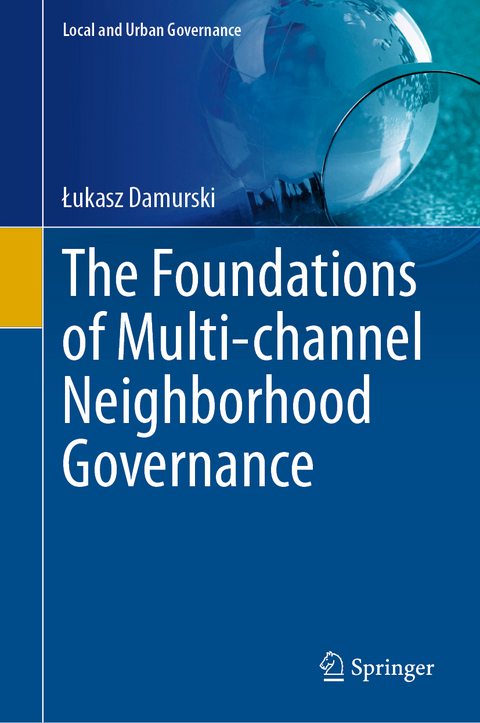
The Foundations of Multi-channel Neighborhood Governance
Springer International Publishing (Verlag)
978-3-031-75123-3 (ISBN)
- Noch nicht erschienen - erscheint am 28.02.2025
- Versandkostenfrei
- Auch auf Rechnung
- Artikel merken
The book presents various aspects of the current urban development in the context of the recent rapid growth of the ICT sector. It focuses on the local scale, in line with the notion that the neighborhood is the fundamental component of any urban area. Beginning with a critical overview of the urban governance paradigms, through a careful analysis of the multifaceted relationships between the Internet and the urban functions, followed by a description of selected approaches to local urban spatial policy, it concludes with a concept of multi-channel neighborhood governance (MCNG).
The key observation is that the accelerating virtualization of urban life has profound consequences for the spatial, social, and economic structures of cities. At the local level, it is changing the functional profile of neighborhoods, replacing some traditional on-site local services with online ones, reducing (or even eliminating) the need for face-to-face social interaction, rejoining work and home roles, and modifying the spatial behaviors of residents. All of this calls for a prompt response from the neighborhood governance, which should include the nonspatial (online) components of contemporary urban lifestyles.
The book searches for an alternative to conventional planning, capable of addressing the virtualization of different urban functions at the neighborhood level and providing satisfactory solutions for shaping an optimal balance between online and offline environments. The study defines a comprehensive method for the management of essential services in urban neighborhoods, with special attention to the integration of online and offline channels. The MCNG concept includes a list of recommendations for urban policy practitioners on how to deal with digital conversion, how to manage land use, how to stimulate entrepreneurship, and how to improve quality of life.
Łukasz Damurski is an urban planner, researcher and academic teacher at the Faculty of Architecture, Wrocław University of Science and Technology, Poland (since 2006). His research interests focus on local (neighborhood) service centers, the relationships between online and offline services as well as public communication and citizen participation in urban planning. He has been a principal investigator in several research projects funded by the National Science Centre Poland and the European Commission. In 2021 he was awarded the Polish-US Fulbright Commission Senior Award and conducted a research project at the Harvard University Graduate School of Design (Cambridge, MA). In 2022 he was appointed the head of the Chair of Urban Planning and Spatial Management.
1.Introduction.- 2.Laying the foundations: neighborhood planning and neighborhood governance.- 3.Multi-channel objects of planning.- 4.Planning as a multi-channel process.- 5.Conclusions.- 6.. References.
| Erscheint lt. Verlag | 28.2.2025 |
|---|---|
| Reihe/Serie | Local and Urban Governance |
| Zusatzinfo | XIII, 144 p. 22 illus., 19 illus. in color. |
| Verlagsort | Cham |
| Sprache | englisch |
| Maße | 155 x 235 mm |
| Themenwelt | Naturwissenschaften ► Geowissenschaften ► Geografie / Kartografie |
| Sozialwissenschaften ► Politik / Verwaltung ► Politische Systeme | |
| Sozialwissenschaften ► Politik / Verwaltung ► Staat / Verwaltung | |
| Schlagworte | conversion of services • e-participation • Landscape/Regional and Urban Planning • local services • online and offline channels • open access |
| ISBN-10 | 3-031-75123-X / 303175123X |
| ISBN-13 | 978-3-031-75123-3 / 9783031751233 |
| Zustand | Neuware |
| Informationen gemäß Produktsicherheitsverordnung (GPSR) | |
| Haben Sie eine Frage zum Produkt? |
aus dem Bereich


